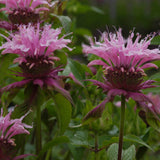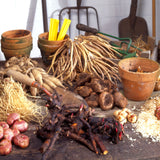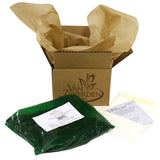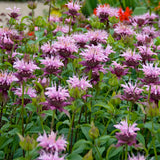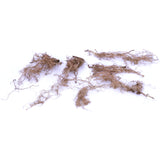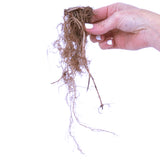PRESALE
Fall 2023 Shipping Schedule: 3/1/2024
Monarda is a pollinator magnet for your summer garden. Pollinators are a vital part of life on planet Earth since they pollinate most flowering plants for them to reproduce. Pollinators do this by transferring pollen from bloom to bloom. Pollinators have been in decline in recent years due to habitat loss and disease. Monarda provides shelter and food for native pollinators to thrive and survive. It is suprisingly easy and lots of fun for you and your family to attract them to your garden to provide spectacular entertainment! Please help to sustain the pollinator populations by planting Monarda and other pollinator magnets.
About this Variety
Beauty of Cobham is a clump forming herbaceous perennial sure to return for years to come if planted zone appropriate. Thrives just about anywhere.
Highlights
- Returns and blooms year after year in most hardy zones
- Perfect for garden beds and borders
- Showy blooms
- Beneficial to pollinators; attracts bees and hummingbirds
- Mint-scented, edible leaves
Exposure:
Full Sun to Partial Shade
Blooms:
Summer
Height:
Grows 24-48" tall
Spacing/Depth:
Plant 12-18" apart, 1.5-2" deep
USDA Zones:
Grow as Perennial in zones 4-10. Grow as Annual elsewhere.
Growing Instructions
Plant Monarda in the spring after all danger of frost has passed in a full sun to partially shaded location in moist but well draining soil. Soil preparation: The ideal soil is porous and drains well and yet still holds enough water for the roots. If your soil is heavy clay and drains slowly, or very sandy and does not hold water, add organic soil amendments (peat moss or ground bark). Spread a 3-4" layer of soil amendment, add fertilizer and incorporate together into the soil to a depth of 10". To plant: Dig a hole 1.5-2" deep in a sunny (at least 4 hours of direct sun), well drained location. Place the Monarda in hole with roots pointed down and space 12-18" apart. Cover with soil and water. Mulch in extreme climates.
Care Tip
Deadhead spent flowers to encourage new blooms. Should be cut to the ground after flowering to promote new growth.







